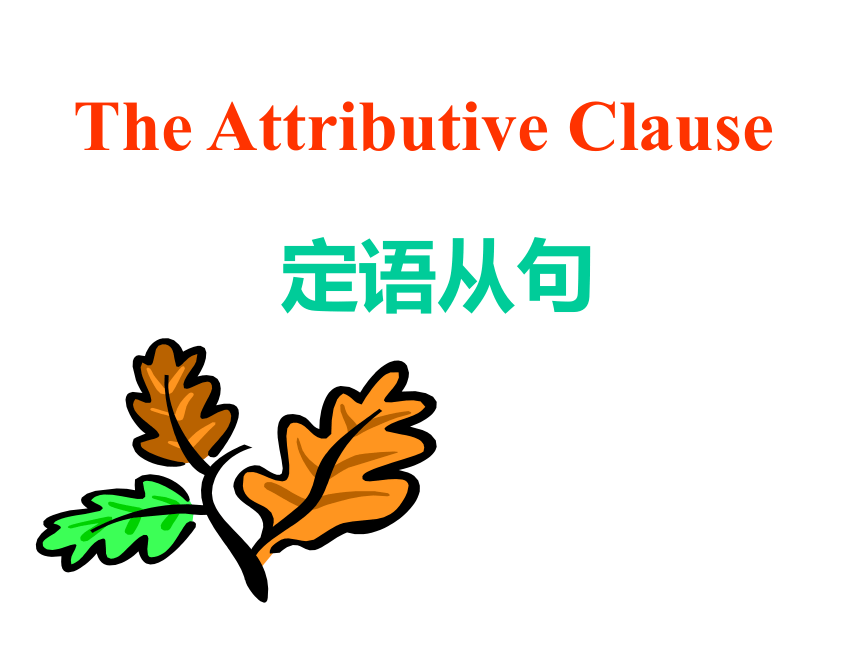(
课件网) The Attributive Clause 定语从句 1.定义: 2.先行词: 3.关系代词、关系副词: 在复合句中用来用来修饰名词或代词的从句叫定语从句。 被定语从句所修饰的名词或代词叫先行词(antecedent)。 引导定语从句的词 关系代词: 关系副词: Who, whom, whose, which, that等 When, where, why等 关系代词和关系副词的作用: 1、引导作用 2、替代作用 3、在定语从句中担当某个成分的作用 Eg: 1.Those who want to go please sign your names here. 2.This is the house where he was born. 3. Bill, who was here yesterday, asked me a lot of questions. 关系代词的用法 指 代 所作成分 是否可省略 That Which Who Whom whose 人;物 物 人 人 人、物 主语;宾语 主语;宾语 主语;宾语 宾语 定语 作宾语可省 作宾语可省 作宾语可省 可省 不可省 关系副词的用法 指代 所作成分 是否可省略 When Where why 时间 状语 否 地点 状语 否 原因 状语 否 关系代词which和that的区别: A.关系代词必须用that的情形: This is the best film that I have ever seen. The first man arrived at the class was our headteacher. This is the only ticket that I got yesterday. This is the very book that I’m looking for. Is there anything that I can do for you All that you have to do is to press the button. There is no time that we can waste. The car and its driver that knocked down the old lady have been taken to the police station. Summarize: 只能用that引导定语从句的几种情况 1)先行词被序数词或形容词最高级所修饰时。 2)先行词被the only,the very,the same,the last修饰时。 3)先行词是不定代词all,few,little,much,something,nothing,anything等. 4)先行词被all,any,every,each,few,little,no,some等修饰。 5)先行词既有人又有物时。 B.指物时,作介词的宾语,关系代词只能用which This is the question about which we’ve had so much discussion. Practice: 1.They asked him to tell them everything _____ he saw at the front. A. what B. that C. which D. where 2.In the dark street, there wasn’t a single person _____ she could turn for help. (1992) A.that B. who C. from whom D. to whom B D Correct the following sentences: 1.This is the best film which I have seen. 2.That’s all which want to say. This is the best film that I have seen. That’s all that I want to say. 3.Is there anything which you want in this shop 4.He talked about some writers and books which/who were unknown to us all. 5.The room in that she lives is a large one. Is there anything that you want in this shop He talked about some writers and books that were unknown to us all. The room in which she lives is a large one. 关系副词when, where, why的用法 1.Do you still remember the day whenwe went to visit the museum together Do you still remember the day on whichwe went to visit the museum together 2.This is the factory wheremy father once worked. This is the factory in whichmy father once worked. 3.This is the reason whyhe was late. This is the reason for which he was late. Summarize: 在定语从句中关系副词都等于一个适当的介词加上which,在从句中作状语 When=in/at/on/…+which; Where=in/at/on/…+which; Why=for /…+which Practice: 1.-- I drove to Zhuhai f ... ...

